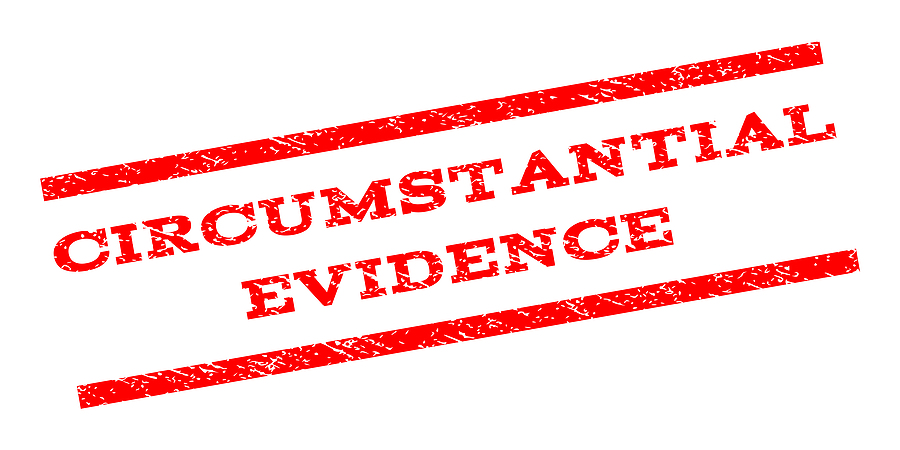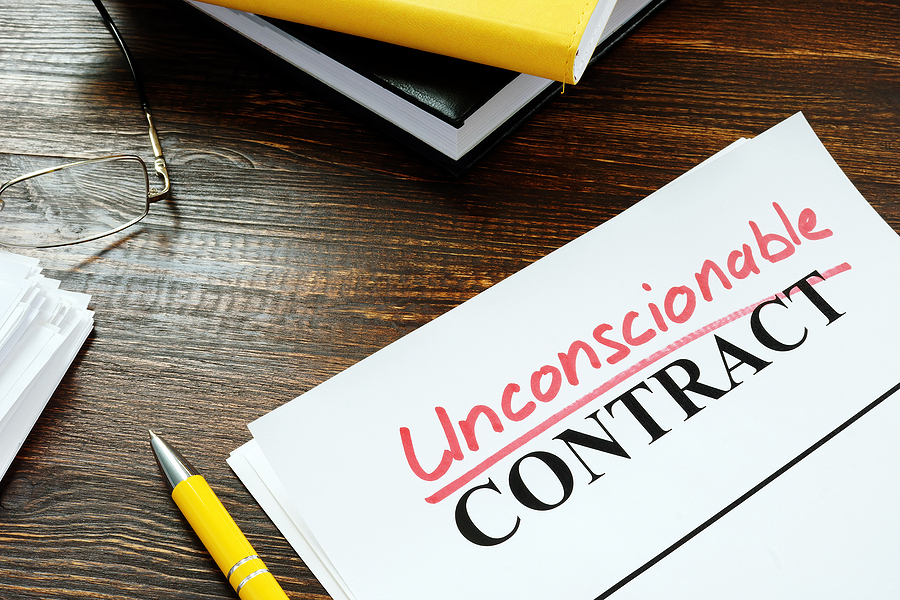Warren Buffet once said, ““If you don’t find a way to make money while you sleep, you will work until you die.” Many people have saved enough money, that subsequently makes enough money to maintain themselves…and then they get divorced. The money divided is often enough to live off as well (or at least pay for half of the divorced person’s expenses).
Do income producing assets mean that no one has to pay maintenance (formerly known as alimony)? Or do income producing assets mean that there is now even more alimony to be paid from that income after an Illinois divorce?
Is There So Much Assets Awarded That Neither Spouse Needs Maintenance?
The assets awarded in an Illinois divorce absolutely affect whether an Illinois divorce court will award maintenance. Before even considering the amount of maintenance, an Illinois divorce court must consider whether the assets awarded to either spouse make a maintenance award appropriate.
“In a proceeding for dissolution of marriage…the court may grant a maintenance award for either spouse in amounts and for periods of time as the court deems just, without regard to marital misconduct, and the maintenance may be paid from the income or property of the other spouse… The court shall first make a finding as to whether a maintenance award is appropriate, after consideration of all relevant factors, including:(1) the income and property of each party, including marital property apportioned and non-marital property assigned to the party seeking maintenance as well as all financial obligations imposed on the parties as a result of the dissolution of marriage.” 750 ILCS 5/504(a)
If the assets awarded are so incredibly lucrative that the spouse’s needs will certainly be met, no maintenance need be awarded.
If the assets awarded do not produce such clear and tremendous independent income, the court will award maintenance, either pursuant to guidelines (a mathematical formula) or deviating from guidelines (based on fairness).
How Is Maintenance Calculated When Income From Assets Are Not Considered?
“[I]f the court finds that a maintenance award is appropriate, the court shall order guideline maintenance” 750 ILCS 5/503(b-1)
A “[m]aintenance award in accordance with guidelines.…shall be calculated by taking 33 1/3% of the payor’s net annual income minus 25% of the payee’s net annual income.” 750 ILCS 5/503(b-1)(1)(A)
This maintenance guideline amount has a cap based on the maintenance receiver’s income relative to the maintenance payor’s income.
“The amount calculated as maintenance, however, when added to the net income of the payee, shall not result in the payee receiving an amount that is in excess of 40% of the combined net income of the parties.” 750 ILCS 5/503(b-1)(1)(A)
The income from assets should be considered when making guidelines maintenance calculations. Income is calculated based on ALL income. “For purposes of this Section, the term “gross income” means all income from all sources” 750 ILCS 5/504(b-3)
“”Income” may be defined as the money or payment received from a variety of sources, including investments.” In re Marriage of Lindman, 824 NE 2d 1219 – Ill: Appellate Court, 2nd Dist. 2005
Income From Assets And Non-Guidelines Maintenance In An Illinois Divorce
People who have a lot of assets to divide, usually have large incomes to match. At larger incomes, courts do not employ guidelines maintenance.
“If the combined gross annual income of the parties is less than $500,000 and the payor has no obligation to pay child support or maintenance or both from a prior relationship, maintenance payable after the date the parties’ marriage is dissolved shall be in accordance with [the guidelines]” 750 ILCS 5/503(b-1)(1)
Any non-guidelines maintenance award can then allow the court to make a maintenance award based on fairness, not a mathematical formula.
“Any non-guidelines award of maintenance shall be made after the court’s consideration of all relevant factors set forth in subsection (a) of this Section.” 750 ILCS 5/503(b-1)(2)
Again, Section A of the Illinois maintenance statute says an Illinois divorce court can “the income and property of each party, including marital property apportioned and non-marital property assigned to the party seeking maintenance as well as all financial obligations imposed on the parties as a result of the dissolution of marriage [when awarding non-guidelines maintenance]” 750 ILCS 5/504(a)
The income from any asset awarded can presumably reduce the necessary maintenance to meet that party’s needs.
In a “case [which] involve[s] sufficient assets to make a substantial award to [the maintenance receiver]…the lump-sum distribution eliminated any inequality between the parties [thereby reducing the need for maintenance].” In re Marriage of Bratcher, 890 NE 2d 1232 – Ill: Appellate Court, 4th Dist. 2008
On the other hand, a smaller award of assets to the maintenance receiver will make a significant maintenance award necessary.
An ”award of maintenance [can be] insufficient when viewed in conjunction with the trial court’s distribution of the marital property.” In re Marriage of Thornton, 412 NE 2d 1336 – Ill: Appellate Court, 1st Dist. 1980
If “the assets [the maintenance receiving ex-spouse] was awarded could not help [them] offset the expenses for her monthly needs [then full maintenance is appropriate]” In re Marriage of Brankin, 967 NE 2d 358 – Ill: Appellate Court, 2nd Dist. 2012
A maintenance receiving spouse will not be presumed to have to spend down all their awarded assets before being eligible for maintenance.
“A former spouse receiving maintenance is not required to exhaust all of her assets in order to meet her basic needs.” IN RE MARRIAGE OF HARMS AND PARKER, 103 NE 3d 979 – Ill: Appellate Court, 5th Dist. 2018
“Where…the property awarded to the spouse seeking maintenance is not so substantial as to provide significant income for her to live on, and where the spouse from whom maintenance is sought has sufficient income to meet his own needs while meeting those of his spouse, the spouse seeking maintenance is not required to sell her assets or impair her capital in order to maintain herself in the manner established during the marriage.” In re Marriage of Thornton, 412 NE 2d 1336 – Ill: Appellate Court, 1st Dist. 1980
Retirement assets are different because you have to start withdrawing them when you reach retirement age. “[A] trial court may consider future income from retirement benefits in determining the proper duration or amount of a maintenance award.” In re Marriage of Heroy, 385 Ill. App. 3d 640, 656 (Ill. App. Ct. 2008)
When asking an Illinois divorce court to apply non-guidelines maintenance, you are really asking the court to determine the amount of money required to maintain the maintenance receiver’s standard of living.
“[M]aintenance is designed to allow the recipient spouse to maintain the standard of living enjoyed during the marriage.” In re Marriage of Micheli, 2014 IL App (2d) 121245
“A spouse should not be required to lower the standard of living established in the marriage as long as the payor spouse has sufficient assets to meet his [or her] needs and the needs of his [or her] former spouse.” In re Marriage of Shen, 2015 IL App (1st) 130733 (quotations omitted)
The standard of living that an Illinois divorce court should consider is based on the lifestyle the maintenance receiving spouse enjoyed during the marriage.
An Illinois divorce court must examine not only “current needs but also how much maintenance was necessary to allow her to enjoy a standard of living comparable to that she enjoyed during the marriage.” In re Marriage of Brankin, 967 NE 2d 358 – Ill: Appellate Court, 2nd Dist. 2012
This standard of living and its price must be proven with evidence. That evidence is easy to prove, just show the bills that paid for the prior standard of living.
Then, the income from the assets awarded must be proven. This is very simple, pick a reltively risk-free interest rate for the presumed income from those assets.
“[A] court may take judicial notice of the fair earning powers of money or invested capital over a certain time period.” In re Marriage of Ryman, 172 Ill. App. 3d 599, 612 (1988)
There is no standard for what rate should be applied to determine the presumed income from an awarded asset.
A “trial court [is] not required to apply various rates of return and make specific findings regarding the amount of income that [one party’s] assets could produce.” In re Marriage of Heroy, 385 Ill. App. 3d 640, 656 (2008)
Without a rule or law about what income an asset will produce, an Illinois divorce court will rely upon experts to testify to the amount that can be expected from the assets awarded.
Those experts are the key to achieving your goal of minimizing or maximizing the income from an asset. An expert may testify to 4% or 5% return from AAA corporate or treasury rate or an 8-9-10% bank loan, collateralized loan obligation or other preferred equity rate. Experts usually say what you want them to (within reason).
If the income generated by the assets awarded cannot be proven, the income from those assets will not be considered to offset maintenance. If a “trial court [does] not determine with mathematical certainty the income-generating potential of [one ex-spouse’s assets does not mean it failed to consider this factor in awarding maintenance.” In re Marriage of Nord, 932 NE 2d 543 – Ill: Appellate Court, 4th Dist. 2010
The entire income producing asset and maintenance analysis can be boiled down to this focmula:
(Standard of living cost) = (Return on assets awarded) = (Maintenance that should be ordered)
Income Producing Assets And Paying Maintenance In An Illinois Divorce
The maintenance paying spouse will likely be awarded income producing assets as well. Will those the income from those assets also be considered for the purposes of paying maintenance?
All of a maintenance payor’s income is supposed to be considered by an Illinois divorce court. “For purposes of this Section, the term “gross income” means all income from all sources” 750 ILCS 5/504(b-3)
Considering a maintenance payor’s income from awarded assets is problematic. When you are awarded the asset, that should be the end of the story. You should not have to pay an ongoing tax on that asset in the form of maintenance.
“Commentators use the phrase “double dipping” to describe the seeming injustice that occurs when property is awarded to one spouse in an equitable distribution of marital assets and is then also considered as a source of income for purposes of imposing support obligations.”” In re Marriage of Eberhardt, 387 Ill. App. 3d 226, 232 (Ill. App. Ct. 2008) (citation omitted)
Retirement accounts, which must be spent sooner or later cannot have those withdrawals counted as income for the purposes of calculating maintenance.
“[D]istributions [from a previously allocated retirement account] do not qualify as income for the purpose of calculating maintenance.” In re Marriage of Virdi, 13 NE 3d 333 – Ill: Appellate Court, 3rd Dist. 2014
However, “IRA disbursements [can be] properly included in…net income despite the fact that they are nonrecurring. Additionally, the income was properly included notwithstanding the fact that the IRA was part of the parties’ property settlement.” In re Marriage of Lindman, 824 NE 2d 1219 – Ill: Appellate Court, 2nd Dist. 2005
Contrary to Lindman, the 4th Illinois district found that “The money the individual places in an IRA already belongs to that individual. When an individual withdraws money he placed into an IRA, he does not gain anything as the money was already his. Therefore, it is not a gain and not income. The only portion of the IRA that would constitute a gain for the individual would be the interest and/or appreciation earnings from the IRA.” In re Marriage of O’Daniel, 889 NE 2d 254 – Ill: Appellate Court, 4th Dist. 2008
Finally, Cook County’s 1st district said withdrawals from previously awarded assets can count as income for child support but not for maintenance.
“[W]ithdrawals from [a] retirement plans as income in determining maintenance is an improper modification of the parties’ property settlement agreement…The [other] child support cases that hold it proper to include the return of capital withdrawals from retirement benefits as “gross income” are well founded on the court’s obligation to protect the best interests of children and public policy determinations that parents financially support their children. Those interests and public policy determinations are not applicable in determining a modification of maintenance. When determining maintenance, withdrawals from a liquidated asset in which the other party had previously waived any future interest do not constitute income.” In re Marriage of McLauchlan, 966 NE 2d 1151 – Ill: Appellate Court, 1st Dist., 2nd Div. 2012
(This is the rare instance where two different judicial districts have multiple different rules in multiple different parts of Illinois)
Despite the multitude of rules regarding using income from assets to calculate support, income from assets awarded can always be, at least, considered for the purposes of maintenance.
“[I]ncome [from assets] bears directly on respondent’s ability to meet his needs while also meeting the needs of petitioner.” In re Marriage of Bryant, 206 Ill. App. 3d 167, 172 (Ill. App. Ct. 1990)
However, parties should take care that a maintenance modification not modify assets awarded pursuant to an agreed Marital Settlement Agreement.
A modification of “maintenance was actually a modification of the parties’ property settlement agreement rather than a modification of the maintenance provision of the dissolution judgment based on a substantial change in circumstances. While maintenance provisions are modifiable upon a showing of a substantial change in circumstances, property settlement provisions are not.” In re Marriage of Munford, 527 NE 2d 892 – Ill: Appellate Court, 1st Dist. 1988
The latest and highest Illinois Supreme court authority says that new money is “new money” regardless of the source.“[U]nder the plain language of the [Illinois Marriage and Dissolution of Marriage] Act, [a party’s] receipt of [an inheritance] are included in the statutory definition of “income” for the purpose of calculating [the party’s] support obligations” In re Marriage of Dahm-Schell, 2021 IL 126802
But note, that Dahm-Schell addresses a non-marital inheritance and not previously awarded assets per an agreement.
The legal definition of income accepted by Illinois’ supreme court include “something that comes in as an increment or addition….a gain or recurrent benefit that is usu[ally] measured in money…the value of goods and services received by an individual in a given period of time” In re Marriage of Rogers, 820 NE 2d 386 – Ill: Supreme Court 2004(quoting Webster’s Third New International Dictionary 1143 (1986) and "[t]he money or other form of payment that one receives, usu[ally] periodically, from employment, business, investments, royalties, gifts and the like'” (id. at 137, 289 Ill.Dec. 610, 820 N.E.2d 386 (quoting Black’s Law Dictionary 778 (8th ed. 2004)))
A subsequent supreme court modified Rogers’ broad definition of income to state, “Money that a person withdraws from a savings account simply does not fit into any of these definitions. The money in the account already belongs to the account’s owner, and simply withdrawing it does not represent a gain or benefit to the owner. The money is not coming in as an increment or addition, and the account owner is not “receiving” the money because it already belongs to him.” In re Marriage of McGrath, 970 NE 2d 12 – Ill: Supreme Court 2012
Of course, the income generated from an asset is only one factor an Illinois divorce court will consider when awarding maintenance. The other factors for the Illinois divorce court to consider are: “(2) the needs of each party;(3) the realistic present and future earning capacity of each party;(4) any impairment of the present and future earning capacity of the party seeking maintenance due to that party devoting time to domestic duties or having forgone or delayed education, training, employment, or career opportunities due to the marriage;(5) any impairment of the realistic present or future earning capacity of the party against whom maintenance is sought;(6) the time necessary to enable the party seeking maintenance to acquire appropriate education, training, and employment, and whether that party is able to support himself or herself through appropriate employment;(6.1) the effect of any parental responsibility arrangements and its effect on a party’s ability to seek or maintain employment;(7) the standard of living established during the marriage;(8) the duration of the marriage;(9) the age, health, station, occupation, amount and sources of income, vocational skills, employability, estate, liabilities, and the needs of each of the parties;(10) all sources of public and private income including, without limitation, disability and retirement income;(11) the tax consequences to each party ;(12) contributions and services by the party seeking maintenance to the education, training, career or career potential, or license of the other spouse;(13) any valid agreement of the parties; and(14) any other factor that the court expressly finds to be just and equitable.” 750 ILCS 5/504
When income from an asset is considered relative to all of these other factors, “[w]hatever the exact nomenclature of the retirement account..[a] court [can] considering the withdrawal of significant retirement funds that [a party] had reserved for this stage in his life and the withdrawal’s impact on [on the withdrawing party’s] lifestyle in determining whether [that party’s circumstances had changed.” In re Marriage of Verhines and Hickey, 129 NE 3d 181 – Ill: Appellate Court, 2nd Dist. 2018
This multitude of considerable factors makes it imperative that your case is adequately represented by an attorney who can accentuate the factors that benefit you and minimize the factors which can harm you. To speak with an experienced Illinois divorce lawyer who knows these factors inside and out, contact my Chicago, Illinois family law firm today.






